Chemo-catalytic conversion
The realization of bio-refineries without chemo-catalytic processes is not feasible. We develop and optimize catalysts and processes to chemo-catalytically convert renewable resources efficiently to bio-based chemicals.
Chemo-catalytic processes are the basis of our present-day chemicals industry and catalysts are used in 80-90% of all processes worldwide. Very often only the use of catalysts allows the selective production of chemicals. Chemo-catalytic processes will also play an important role in converting renewable resources to bio-based chemicals thereby complementing biotechnological processes.
Until now the production of chemicals was based on limited fossil raw materials and particularly crude oil whose price is rising constantly. The development of catalysts and processes to produce chemicals from renewable resources as raw materials is a crucial necessity to shift from a petrochemical to a bio-based chemical industry. This fact is reflected in our research by focusing on different reactions including:
- Gold catalyzed oxidation of sugars to sugar acids
- Oxidation to ether carboxylic acids with bimetallic gold catalysts
- Acid catalyzed production of HMF from sugars
- Catalytic conversion of ethanol to butanol with basic supported metal catalysts
- Production of maleic acid from xylose with multifunctional catalysts
- Catalytic derivatisation of itaconic acid applying different catalysts
The aim of our research is to develop highly active and selective catalysts which should also exhibit a good long-term stability in these reactions. In order to support the catalyst development supplementary catalyst characterization methods are used.
Depending on the reaction catalysts are applied in discontinuous (batch) or continuous reactors. Through the variation of process conditions including temperature, pressure and concentration kinetic data is collected and analyzed to increase the product yield by optimizing process conditions.

![[Translate to English:] [Translate to English:]](/media/_processed_/3/6/csm_Hintergrund-Ausschnitt1_9daaef6b89.jpeg)
![[Translate to English:] [Translate to English:]](/media/_processed_/3/6/csm_Hintergrund-Ausschnitt1_0bd7111163.jpeg)
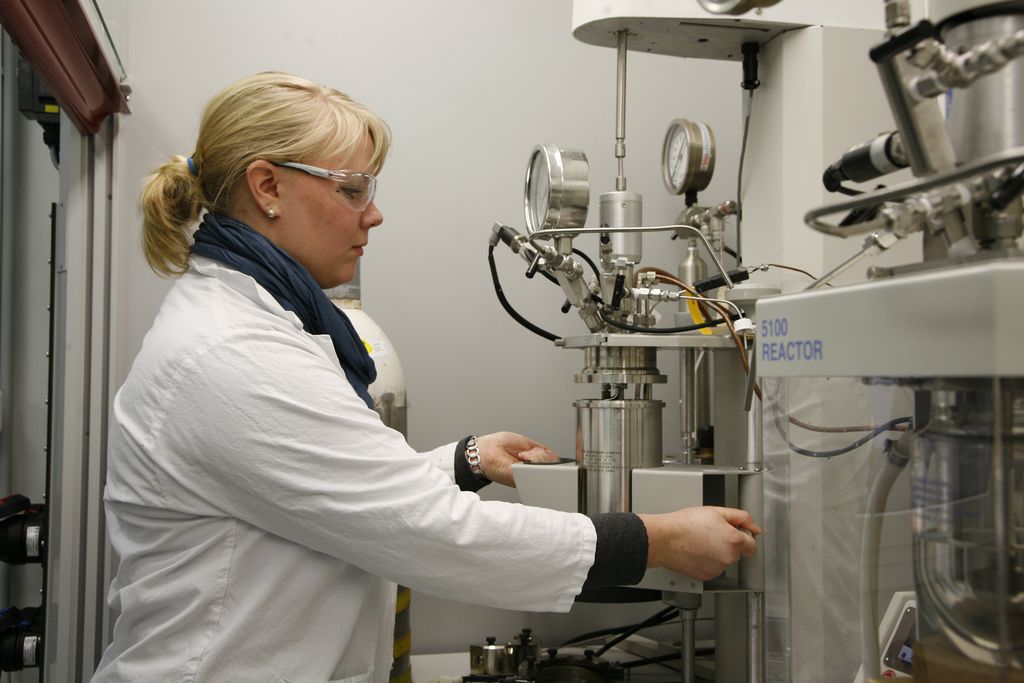
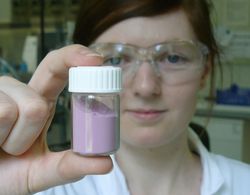
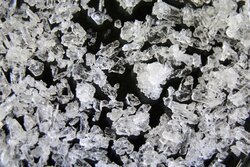
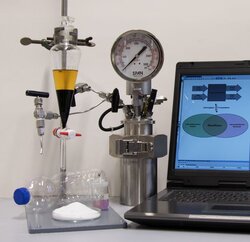
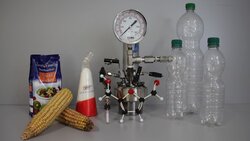
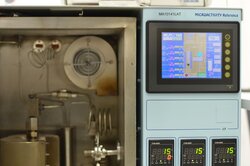
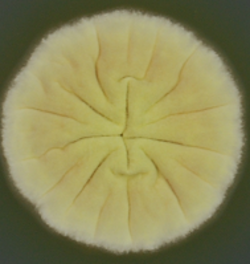
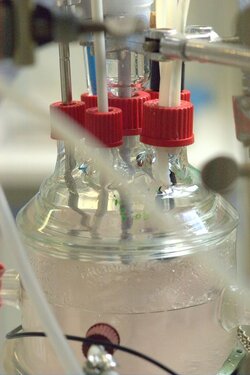
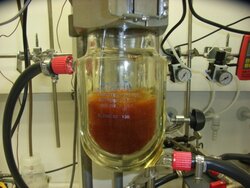
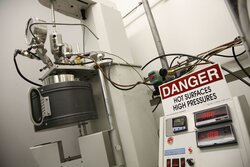
![[Translate to English:] Logo des Bundesministerium für Ernährung und Landwirtschaft](/media/allgemein/logos/BMEL_Logo.svg)